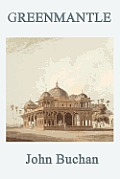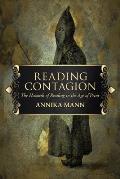Greenmantle, White Men
Like Buchan’s The Thirty-Nine Steps the previous year, the story is primarily a chase. Hannay and his fellow British secret agents make their way across Germany, Austria-Hungary, Serbia, Bulgaria, and Turkey to the Russian front in various guises.
There’s no doubt the book is well written and gripping. But ultimately it was unsatisfying. Though Hannay is our narrator and lead protagonist, by far the most important figure in the mission is his friend Sandy, who travels up through the Near East. Yet we hardly ever see what adventures Sandy has.
Another supporting character, Peter, becomes crucial at the end, but he gets a whole chapter to himself, reportedly told to Hannay later. For the rest of the book we’re traveling with Hannay, who’s resourceful and lucky in equal measures, but ultimately accomplishes little beyond staying alive and stumbling across a map.
In contrast, Sandy disguises himself as an Arab and undermines German efforts through the local society. He recruits a band of loyal aides, infiltrates the villainess’s household, and rescues Hannay on several occasions. Yet almost all that work and all those suspenseful moments are off stage.
Furthermore, that whole plotline just underscores shows how the racism of Greenmantle goes well beyond its rhetoric. And the rhetoric is unmistakably bad. Hannay says things like:
- “Gaudian was clearly a good fellow, a white man and a gentleman. I could have worked with him for he belonged to my own totem.”
- “‘Europe is a poor cold place,’ said Peter, ‘not worth fighting for. There is only one white man's land, and that is South Africa.’ At the time I heartily agreed with him.”
- “Then we were always being stopped by sentries and having to show our passes. Still the ride did us good and shook up our livers, and by the time we turned for home I was feeling more like a white man.”
- “Peter had a compass, but he didn't need to use it, for he had a kind of ‘feel’ for landscape, a special sense which is born in savages and can only be acquired after long experience by the white man.”
To get back to Sandy, he doesn’t spout the same nonsense about non-whites. He actually seems to respect the non-British culture he blends into. But his success in disguise gives rise to another racist trope: this Scotsman becomes a better Arab than any Arab we meet.
Sandy not only blends in completely, he’s not only the leader of his little cult, but he ends up becoming the “Greenmantle” himself—the reincarnation of a Muslim prophet whom a German agent was hoping to use to energize the Turks.
In that setup, Buchan was evidently inspired by the Islamic tradition of the Mahdi, a returning savior. This belief is especially strong in Shi’a Islam, but also has many adherents in Sunni Islam. However, to Buchan as a British colonist in Africa, “the Mahdi” meant a particular ruler of Sudan in the late 1800s who claimed that title. Thus, Buchan invented “Greenmantle” as a new term for that Islamic savior.
Buchan’s first novel, Prester John, also involved a messianic uprising of locals against the British Empire. Evidently it was a danger he felt keenly.
Such movements remained inscrutably foreign to Buchan, and thus to Hannay. I see that as tied into the author’s inability to tell Sandy’s story from within Islamic society, much less to tell the story of someone from that society instead of someone infiltrating it. Instead, the real action in Greenmantle remains off-stage, submerged, and unfathomable.






